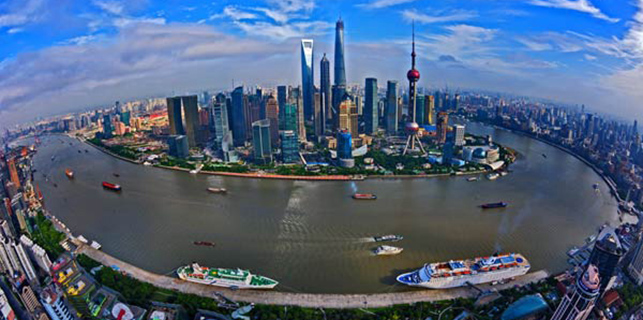US companies look to expand key-sector investment in South China, AmCham chief says
Harley Seyedin, president of AmCham South China who has been working in China for 25 years, said he believes in sound Sino-US economic relations for the interdependence of the two economies.
"Are US-China relations going to be good? Absolutely. They have to be, because the two countries depend on each other in many ways. They depend on each other politically, economically and culturally," he said.
Companies from the US are looking to increase their investments in South China’s modern service, energy and high-end manufacturing sectors as the country transitions to a more moderate phase of growth, according to an AmCham South China survey released earlier this year.
AmCham South China represents more than 2,300 US and international members doing business in South China region.
From his experience, Seyedin said bilateral economic ties have never been "easy sailing because there is always different interests involved. It has been fruitful and rewarding for all of the people involved in two-way business between the US and China".
"China’s contribution to the US has been in the form of making goods available to US consumers at reasonable prices in a competitive fashion, which has helped raised the standard of living in the US."
With the opening-up of the Chinese market, over 77 percent of the member companies in the survey say they are supplying goods or services to the Chinese market, compared with the less than 23 percent in the survey 14 years ago.
"Our companies have adjusted to move up the value chain to benefit from the changing market of China."
With continued reform and opening-up, the growth of the Chinese consumer market should accelerate, he said.
Eager to grab more market share from China’s industrial upgrading boom, Gregory Hayes, chairman of the Connecticut-headquartered United Technologies Corp, said his company will continue to invest in China. Otis, its elevator brand, will build a 220-meter tower to test the next generation of high-speed elevators in Shanghai this year.
The company has already brought all its high-rise research and development facilities to China.
"We will also continue to invest on the commercial side. Carrier, our air conditioning, heating and refrigeration subsidiary will continue to make investments –they have their R&D center, they are moving into a much larger facility outside of Shanghai this year," said Hayes.
Zou Dongtao, director of the China Institute for Development and Reform at the Central University of Finance and Economics in Beijing, said with their technology edges, US companies certainly can benefit from China’s surging demand in modern agriculture, new energy vehicles, aero-engines, green construction, high-end machinery and wind power, over the long term.









